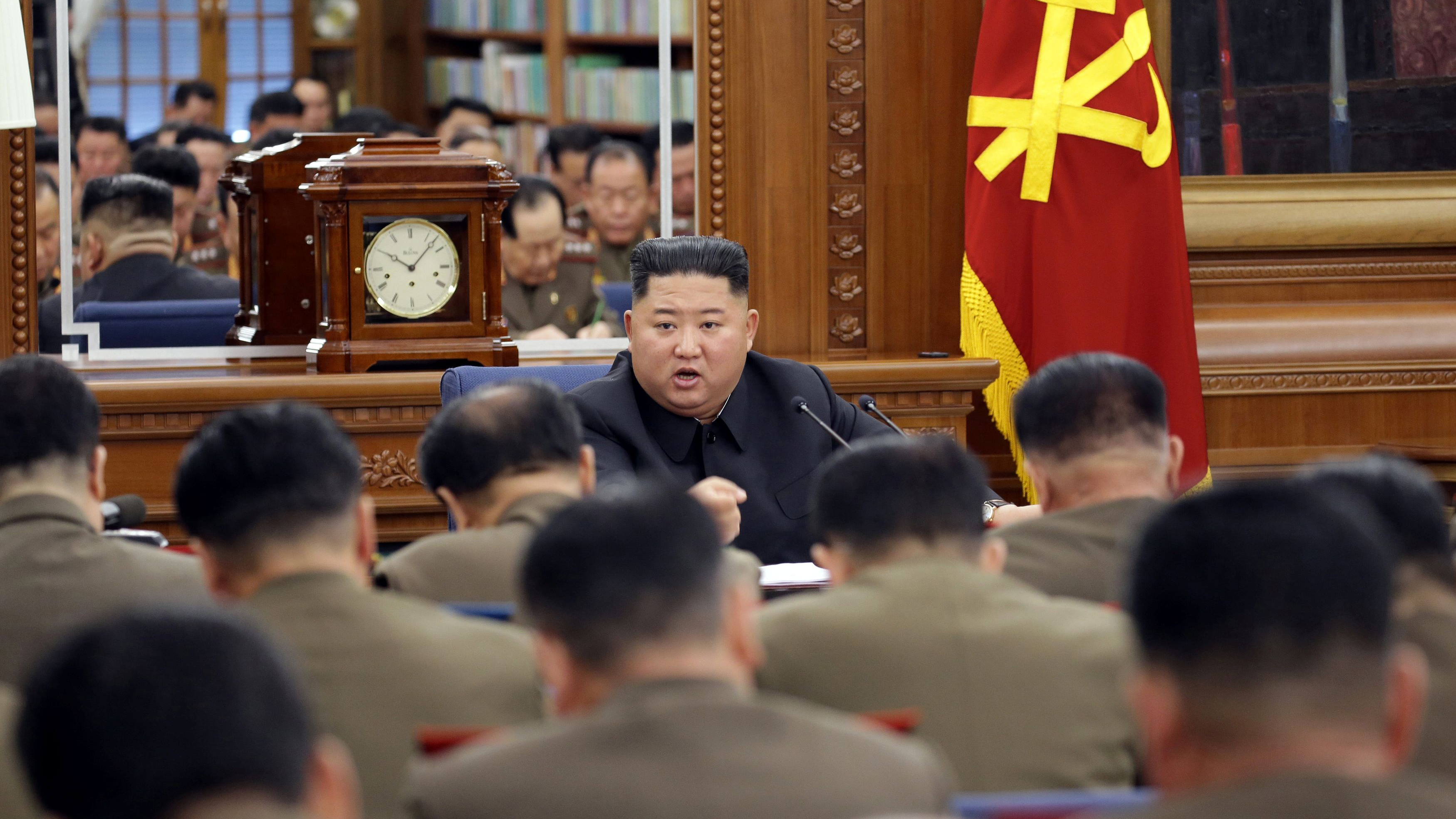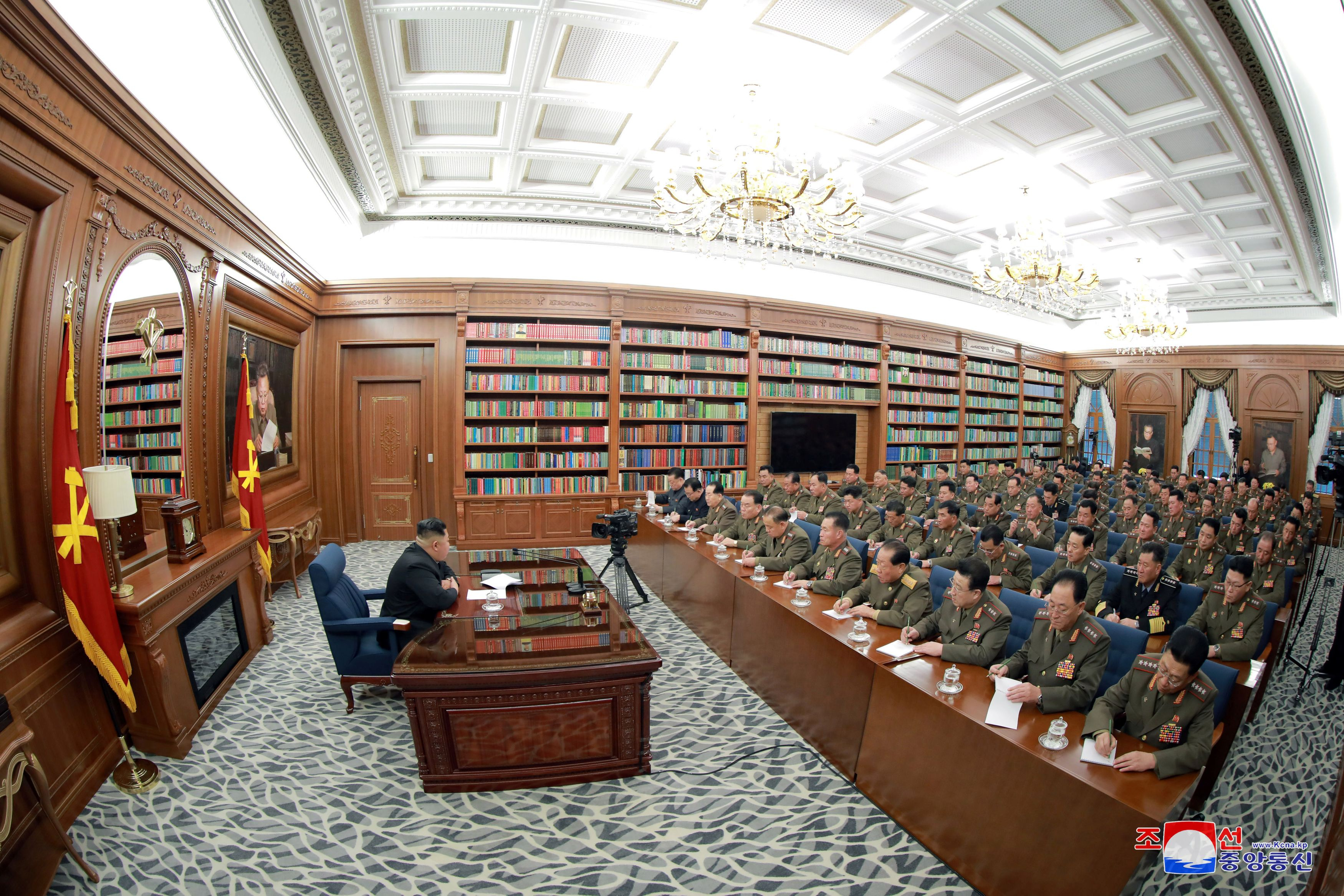Kim Jong Un, top leader of the Democratic People's Republic of Korea (DPRK), presided over an enlarged meeting of the Central Military Commission of the ruling Workers' Party of Korea and discussed "important organizational and political measures and military steps to bolster" the armed forces, the state Korean Central News Agency (KCNA) said Sunday.

Kim Jong Un, top leader of DPRK, speaks during an enlarged meeting of the Central Military Commission of the ruling Workers' Party of Korea in this undated photo released on December 22, 2019, by the Korean Central News Agency. /Reuters Photo
Kim Jong Un, top leader of DPRK, speaks during an enlarged meeting of the Central Military Commission of the ruling Workers' Party of Korea in this undated photo released on December 22, 2019, by the Korean Central News Agency. /Reuters Photo
Kim, also chairman of the Workers' Party of Korea (WPK) and chairman of the State Affairs Commission of the Democratic People's Republic of Korea (DPRK), briefed delegates on the "complicated" internal and external situation.
"Also discussed were important issues for decisive improvement of the overall national defense and core matters for the sustained and accelerated development of military capability for self-defense," the state news agency said.

Kim Jong Un, top leader of DPRK, speaks during an enlarged meeting of the Central Military Commission of the ruling Workers' Party of Korea in this undated photo released on December 22, 2019, by the Korean Central News Agency. /Reuters Photo
Kim Jong Un, top leader of DPRK, speaks during an enlarged meeting of the Central Military Commission of the ruling Workers' Party of Korea in this undated photo released on December 22, 2019, by the Korean Central News Agency. /Reuters Photo
The meeting decided on important organizational and political measures and military steps to bolster the overall armed forces of the country, KCNA said.
The meeting also reached decisions on "important military issues and measures for organizing or expanding and reorganizing new units in conformity with the party's military and strategic intention, changing the affiliation of some units and changing deployment of units," it said.